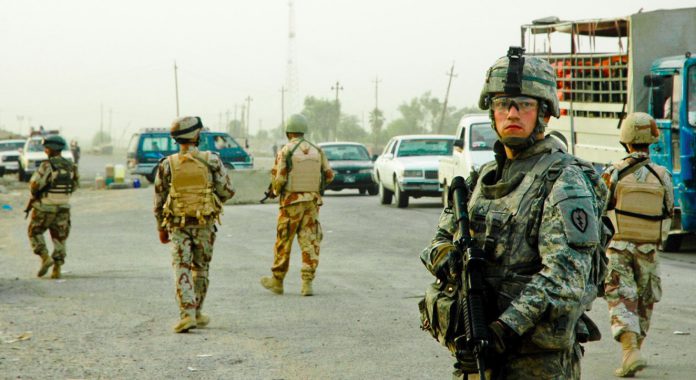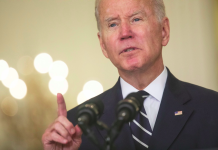Twenty years have passed since the 9/11 attacks in the United States. It was in the immediate aftermath that US President George W. Bush declared his infamous “war on terror” and launched a cataclysmic campaign of occupation in both Afghanistan and Iraq.
In 2001, a US-led coalition invaded Afghanistan to dismantle al-Qaeda and search for its leader, Osama bin Laden, who were harbored by the Taliban government. The presence of foreign troops sent al-Qaeda militants into hiding and the Taliban were overthrown.
In declaring his war, Bush gave the international community an unequivocal ultimatum: to either be “with us or against us in the fight against terror.” In 2003, he took this a step further. He leveraged his power and convinced US allies that Iraq was a state sponsor of terror and its president, Saddam Hussein, had developed weapons of mass destruction, which posed an imminent threat. It wasn’t long before the world found out that this narrative was constructed by the White House as the Bush administration was determined to attack Iraq. The results were devastating: hundreds of thousands of Iraqi deaths, the displacement of over 9 million civilians and the political mayhem that continues to this day.
It has been argued that Islam has been conflated with terrorism not only in the media, but also in much of the political discourse. As a direct result of the war on terror, studies show that an attack by a Muslim perpetrator receives 375% more attention than if the culprit was a non-Muslim.
As these patterns grew with time, countries started to employ their deterrence capacity under the guise of the “war on terror,” only to undermine those who were resisting regimes or seeking self-determination. This was seen in countries like Egypt, Saudi Arabia and the United Arab Emirates. Even Russian leader Vladimir Putin, in 2001, quickly persuaded Western leaders that his country faced similar threats from Islamists and was dealt a carte blanche to crack down with brute force on insurgents and civilians alike.
The foreign occupation of Afghanistan ended in August 2021. After 20 grueling and miserable years, the US pulled out from Afghanistan amidst a Taliban takeover, setting a range of events into motion. Chaos filled Kabul Airport as scores of people were desperate to leave the country. The IMF suspended Afghanistan’s access to hundreds of millions in emergency funds due to a “lack of clarity within the international community” over recognizing a Taliban government.
The war led to irreparable damages and hundreds of thousands of Afghans paid with their lives. The US spent over $2.2 trillion on the conflict and had thousands of its soldiers returned in body bags. Today, starving families in Afghanistan are selling their babies for money to feed their children and the world only looks on.
To understand how we got here, I spoke to Anas Altikriti, a political analyst, hostage negotiator and the CEO of The Cordoba Foundation, an organization aimed at bridging the gap of understanding between the Muslim world and the West. In this interview, we discuss America’s handling of the occupation and examine Afghanistan’s next steps now that the Taliban has assumed authority in the country.















